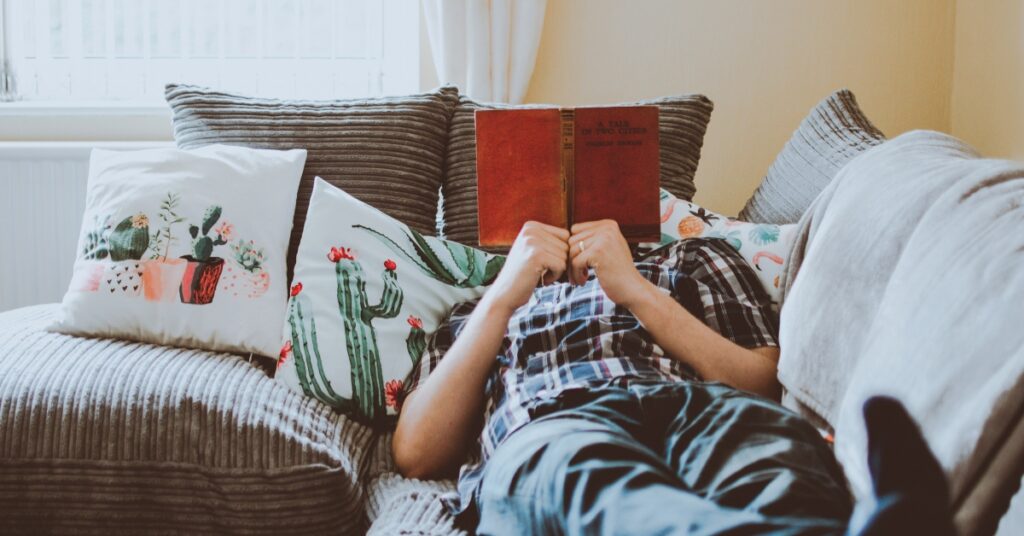By: The Centre for Effective Living
How do you rest when you feel too busy to rest? We all know that rest is essential for our wellbeing, but there are some seasons of life where you might feel too busy!
You might be a parent of young children or working a demanding job and trying to fit in life outside of work hours – rest can sometimes feel like a luxury you can’t afford. If this describes your experience, the reality is that rest is all the more important for your recovery and replenishment. In this blog, we will consider some practical and realistic ways to rest when life feels too busy and full.
Feel too busy to rest? First, get a felt sense of rest…
A good place to start is to get a felt sense of rest. If you feel too busy to rest, you may find that switching off is challenging. Even if you are physically doing something “restful”, your mind might be scanning for the next task on your to-do list or your body might jump into action mode when you’re reminded of something that needs doing. If you have felt too busy to rest for a long time, you may have lost touch with what the experience of rest feels like. A felt sense of rest identifies and describes the embodied experience of rest, relaxation and quiet so you can notice when you are resting in the moment.
Rest feels like:
- When there’s no urgency. You’re not rushing, multi-tasking or anticipating. Time feels more spacious – even if you’re doing something.
- When your body softens. Your shoulders drop, your jaw unclenches, you lean back. Your breathing slows down naturally.
- When your mind feels at ease. It is a feeling of being calm and present. There’s no feeling of pressure or being driven.
- When you feel safe enough to feel. You might feel bored, or you might notice some more difficult feelings arise that may need processing.
- When you are allowed to just be, without having to do.
Practical tips on how to rest when you feel too busy..
When you feel too busy to rest, we may assume that rest looks like spending hours alone in silence. Rest becomes one more goal that we cannot reach and just makes us feel guilty. Here is a mindset shift that can quieten the guilt and actually help you rest more… Rest does not have to be a separate, guilt-inducing goal and you don’t need hours of empty time to rest. Rather, rest can be woven into daily life. You only need a moment, it can be micro and subtle, yet still absolutely effective in replenishing your energy and refreshing your mind.
Here are some ideas on what it looks like to weave rest into your daily life.
Micro Rest Moments:
- One sip pause. When you drink your tea or coffee, take one mindful sip slowly. Let your shoulders drop. Even five seconds of slowing down is rest.
- Breathing breaks. A few slow exhales in the middle of the day. Try tell your body “it’s okay to settle, even here”.
- Hand-on-heart check in. Put your hand on your heart and ask yourself how you are doing. Remind yourself that even this act is a way you are looking after yourself.
Body-Based Rest:
- Restorative postures. Lie down for 5-10 minutes. Play relaxing music while you rest.
- Weighted rest. Use a blanket or pillow on your chest/lap during a quiet moment to calm your body
- Busy body resting. Slow folding laundry, colouring in or knitting can be restful if it’s done without rushing or multitasking.
When it feels like there is no time to rest, remember that rest is actually productive. Your body is busy when you rest. For example, when you sleep, cells are being repaired, emotions are being processed, memories are getting sorted and energy reserves replenished. This perspective can help you give yourself permission to rest even when the to-do list is not totally complete. Know that, rest is something that is completely essential for your wellbeing.
Article supplied with thanks to The Centre for Effective Living.
About the Author: Lauren Chee is a psychologist who understands the importance of forming a caring therapeutic relationship with her clients, and uses evidence-based skills that can lead to positive and lasting change. She has a special interest in anxiety-related disorders, OCD, social skills, parenting and attachment, child mental health and learning difficulties.
Feature image: Canva





